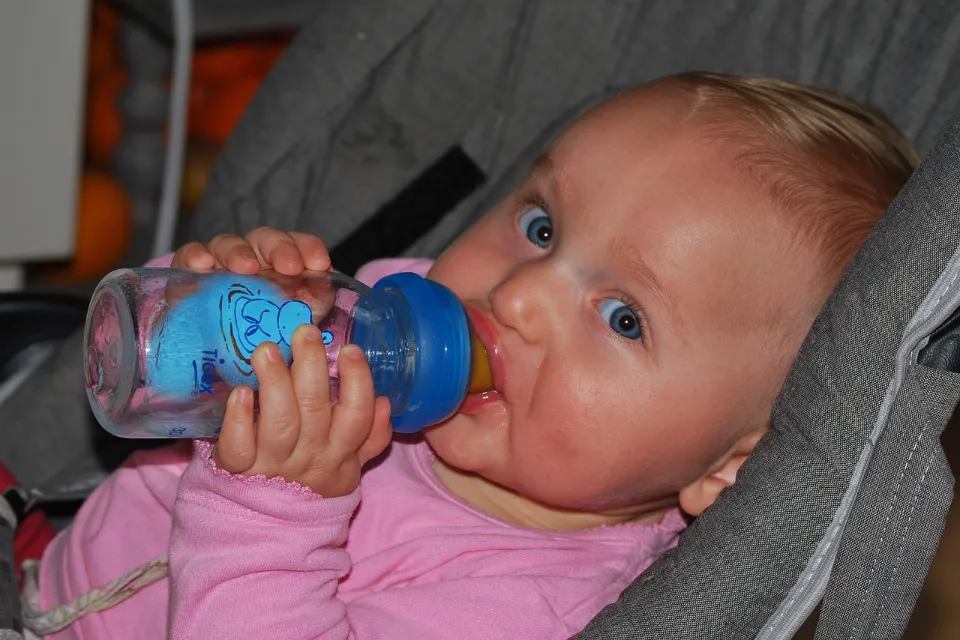
How Many Baby Bottles Should You Need – What to Know
Baby bottles are a crucial item on your checklist if you’re expecting a child among other things to prepare for. How many do you actually need, though? For new parents who want to make sure they have a sufficient supply without going overboard, it is a common dilemma.
This article will give you helpful advice on how to calculate the ideal stockpile size of baby bottles. You can confidently stock up on the appropriate amount and be ready for your baby’s feeding journey by taking into account factors like feeding frequency, bottle cleaning routines, and convenience.
How Many Baby Bottles Do You Need a Day?
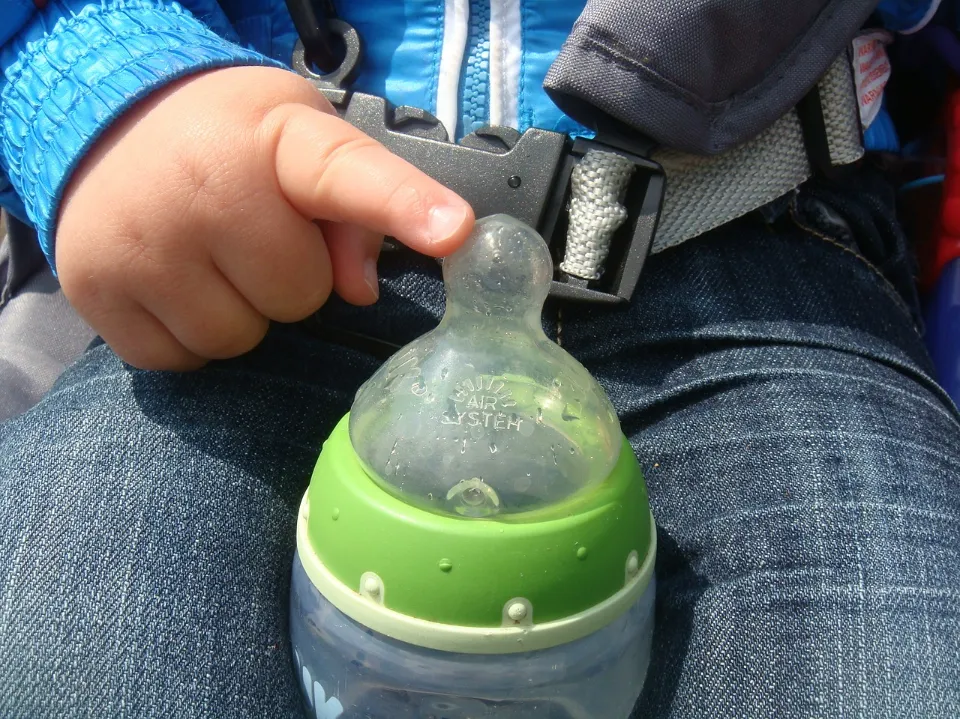
Regarding how many bottles you should purchase for your baby, there isn’t really a clear-cut guideline.
This number frequently depends on a variety of variables, such as your baby’s age and appetite, whether you’re breastfeeding, whether you need to prepare additional children for daycare, and whether you need to.
Read More: How Often to Replace Your Baby Bottles
Here’s a handy guide to the estimated number you’ll need to prepare for your little one:
Two to Four Bottles
You’ll probably only need two to four bottles if you’re breastfeeding and spend most of your time at home.
Unless you need to take your baby out or need to leave your child for a few hours, you probably won’t need these bottles.
Having some bottles available will also enable your partner to help you feed the baby.
Three to Six Bottles
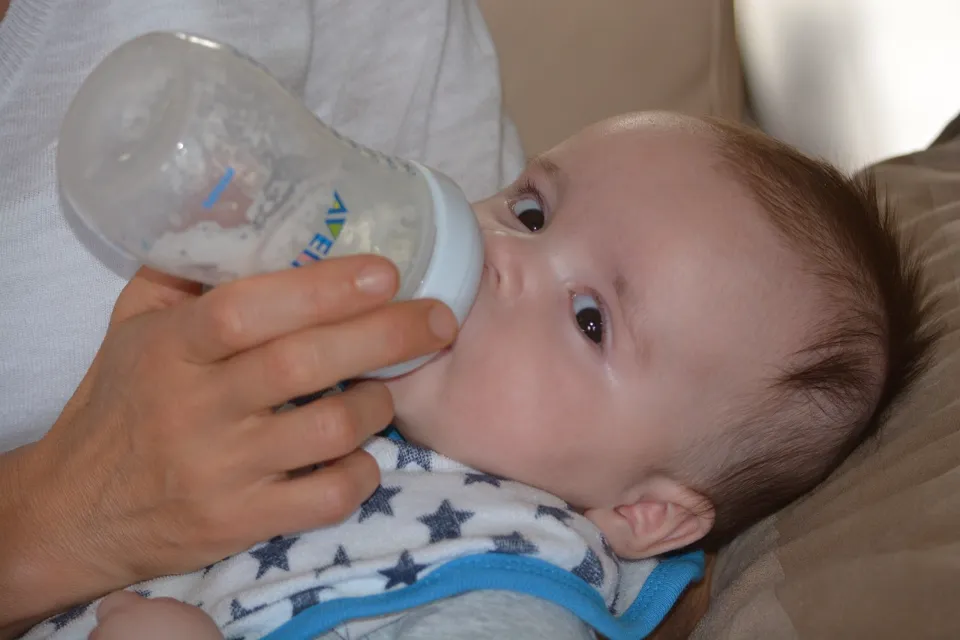
If you intend to bottle-feed your child, you will require three to four bottles that you must clean frequently throughout the day.
You can choose to buy up to six bottles so you can reduce the amount of time you spend cleaning because there will still be extra bottles available.
Six Or More Bottles
It might be a smart idea to stock up on more bottles if you’re a working mother who frequently needs to be gone for several hours.
It’s ideal to have enough bottles on hand so that they can be used exclusively for the duration that your child is in daycare or is being watched at home by a babysitter.
You might need to make one bottle for every two hours that you’ll be gone, depending on how frequently your baby drinks milk.
Depending on the requirements of your baby’s daycare, you will likely need to prepare milk in at least five different bottles.

In the beginning, as your child gets older, you will need more bottles to feed him or her. However, as they learn to use a cup or glass to drink their milk, this gradually decreases.
How to Find Your Ideal Baby Bottle
Now that you have an idea of the number of bottles you require, let’s discuss the ideal bottles for your circumstances. When selecting bottles for your child, there are a few things to take into account. The types of baby bottles and the materials used to make them are what really matter.
Various bottle types should be taken into account. Pros, cons, and areas of expertise are present for each. To meet various needs, some parents decide to keep a variety on hand.
Standard Bottles
What generally comes to mind when you think of a baby bottle is a standard baby bottle. Parents typically use these bottles for daily needs because they are the most prevalent ones you see in stores. No bells or whistles are included with a typical baby bottle. They are trustworthy and provide the most common fits for teats and accessories. The most affordable option is typically a standard baby bottle.
Anti-colic Bottles
When using standard bottles, babies occasionally swallow air, which causes uncomfortable gas and indigestion. Your baby may experience colic, which is characterized by protracted crying spells. The first six weeks of a baby’s life are when colic is most prevalent, and it typically goes away on its own. Anti-colic bottles are made to make it harder for your child to eat while swallowing air. In general, this kind of bottle costs more and is more challenging to clean than standard bottles. It’s worth it, though, if you’ve noticed that your child frequently ingests air.
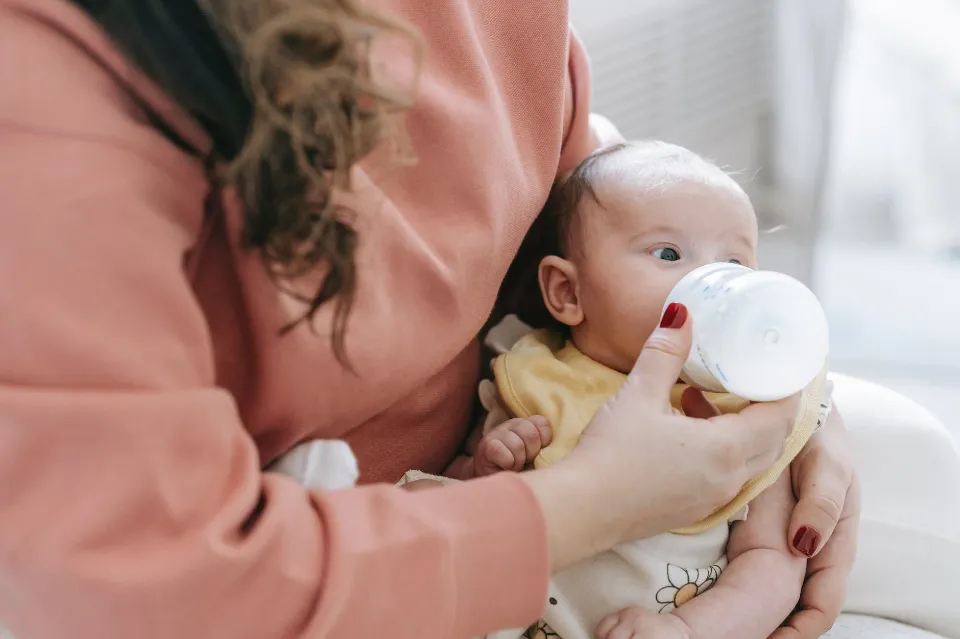
Self-sterilizing Bottles
The microwave can be used to sterilize self-sterilizing bottles quickly and easily. You’ll place the bottle’s components on top of a small portion of the water-filled base. After that, you steam sterilize it for a short time in the microwave.
Disposable Bottles
These ready-to-use single-use bottles cost not too much money. However, if you use them often, the cost of feeding your baby with reusable bottles will quickly surpass that of using disposable ones. They also don’t respect the environment.
Plastic Bottles
Although there are a few things to think about, plastic bottles have historically been the most popular. Bisphenol A (BPA), an industrial chemical, used to be present in plastic baby bottles. Due to health concerns, the US Food and Drug Administration banned the plasticizer BPA from baby bottles in 2012. You might feel uneasy about using them, though, if the chemical is one that is still permitted in plastic bottles. Plastic does provide a durable and affordable alternative, despite potential health risks. If you choose to use plastic bottles, stay away from those that contain BPA, BPS, phthalates, and PVC.

Glass Bottles
The chemical risk associated with plastic bottles is not present with glass bottles. They can withstand high temperatures and are also simple to sanitize. Glass bottles can break and are more expensive, which is a drawback. They might be too heavy for your infant as well, who might attempt to grab the bottle while eating.
Silicone Bottles
The most popular bottles among parents are made of food-grade silicone because they are shatter-proof like plastic but don’t contain the same dangers from chemicals. If you’ve made the decision to purchase silicone bottles for your child, make sure they are made of food- or medical-grade silicone. It should be noted that silicone bottles typically cost more than plastic and glass bottles.
How Long Do Baby Bottles Last?
Glass, silicone, and stainless steel baby bottles are very durable and only really need to be replaced if they are broken. Given that glass bottles are more likely to chip, you will need to be especially careful with them.
It is recommended to replace plastic baby bottles every two to three months. You ought to change them out right away if they become harmed, discolored, or begin to smell bad. To ensure that everything is functional and in good condition, regularly inspect all of your bottle-feeding equipment.
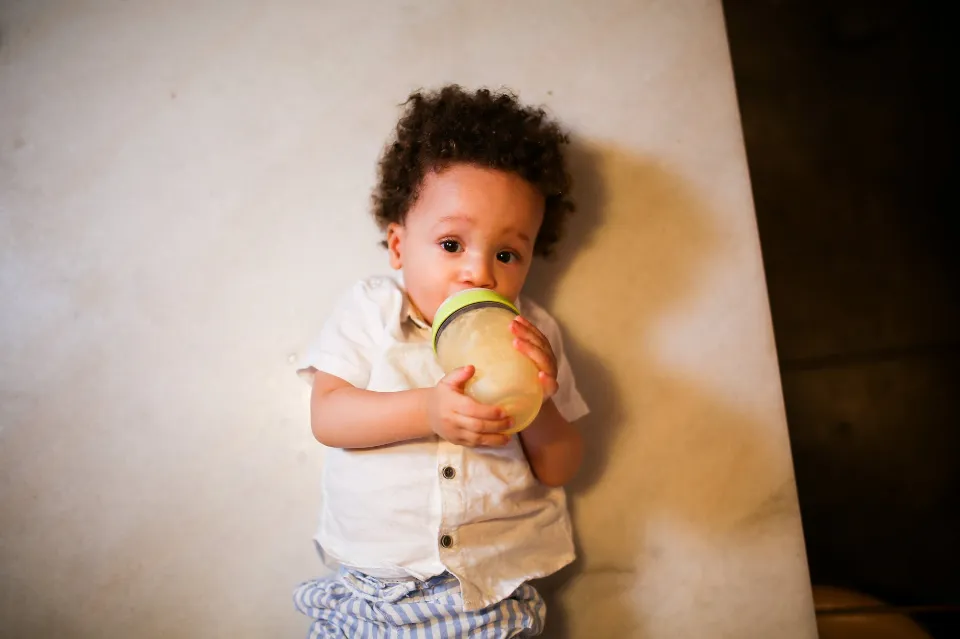
How to Clean Baby Bottles?
I have some good news for you! Baby bottles do not require sterilization before each use. As your child grows, you only need to sanitize every few days; you can do this for the first few months. According to the CDC, you may need to sanitize bottles daily or more frequently if your baby was born prematurely, has a medical condition, or is under three months old. Discuss this with your child’s pediatrician depending on your baby’s health situation.
Use a separate tub or basin (so they don’t touch the sink) and a dedicated baby bottle brush when cleaning your baby’s bottles, nipples, or anything else involved in the feeding process. Do not use a towel to dry them off; instead, thoroughly rinse them in warm water. The dishwasher can also be used, provided that it has a special basket designed to hold all bottle components.
Conclusion
There is no one-size-fits-all solution for baby bottles, in the end. Once you’ve selected the ideal bottle for your child, use it and clean it properly to ensure their safety and wellbeing. Do not be afraid to consult your doctor or other parents who have been through this process before if you ever feel overwhelmed or need assistance with bottle-feeding your baby.





Average Rating